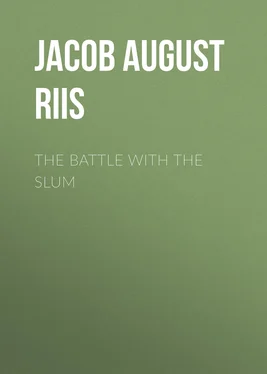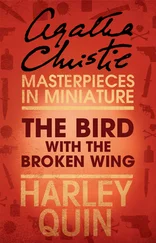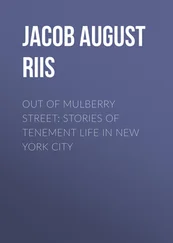Jacob August Riis - The Battle with the Slum
Здесь есть возможность читать онлайн «Jacob August Riis - The Battle with the Slum» — ознакомительный отрывок электронной книги совершенно бесплатно, а после прочтения отрывка купить полную версию. В некоторых случаях можно слушать аудио, скачать через торрент в формате fb2 и присутствует краткое содержание. Жанр: foreign_prose, sociology_book, foreign_antique, на английском языке. Описание произведения, (предисловие) а так же отзывы посетителей доступны на портале библиотеки ЛибКат.
- Название:The Battle with the Slum
- Автор:
- Жанр:
- Год:неизвестен
- ISBN:нет данных
- Рейтинг книги:3 / 5. Голосов: 1
-
Избранное:Добавить в избранное
- Отзывы:
-
Ваша оценка:
- 60
- 1
- 2
- 3
- 4
- 5
The Battle with the Slum: краткое содержание, описание и аннотация
Предлагаем к чтению аннотацию, описание, краткое содержание или предисловие (зависит от того, что написал сам автор книги «The Battle with the Slum»). Если вы не нашли необходимую информацию о книге — напишите в комментариях, мы постараемся отыскать её.
The Battle with the Slum — читать онлайн ознакомительный отрывок
Ниже представлен текст книги, разбитый по страницам. Система сохранения места последней прочитанной страницы, позволяет с удобством читать онлайн бесплатно книгу «The Battle with the Slum», без необходимости каждый раз заново искать на чём Вы остановились. Поставьте закладку, и сможете в любой момент перейти на страницу, на которой закончили чтение.
Интервал:
Закладка:
Jacob A. Riis
The Battle with the Slum
PREFACE
Three years ago I published under the title "A Ten Years' War" a series of papers intended to account for the battle with the slum since I wrote "How the Other Half Lives." A good many things can happen in three years. So many things have happened in these three, the fighting has been so general all along the line and has so held public attention, that this seems the proper time to pass it all in review once more. That I have tried to do in this book, retaining all that still applied of the old volume and adding as much more. The "stories" were printed in the Century Magazine . They are fact, not fiction. If the latter, they would have no place here.
"The Battle with the Slum" is properly the sequel to "How the Other Half Lives," and tells how far we have come and how. "With his usual hopefulness," I read in the annals of the American Academy of Political and Social Science of my book three years ago, "the author is still looking forward to better things in the future." I was not deceived then. Not in the thirty years before did we advance as in these three, though Tammany blocked the way most of the time. It is great to have lived in a day that sees such things done.
J. A. R.Richmond Hill,
August 27, 1902.
WHAT THE FIGHT IS ABOUT
The slum is as old as civilization. Civilization implies a race to get ahead. In a race there are usually some who for one cause or another cannot keep up, or are thrust out from among their fellows. They fall behind, and when they have been left far in the rear they lose hope and ambition, and give up. Thenceforward, if left to their own resources, they are the victims, not the masters, of their environment; and it is a bad master. They drag one another always farther down. The bad environment becomes the heredity of the next generation. Then, given the crowd, you have the slum ready-made.
The battle with the slum began the day civilization recognized in it her enemy. It was a losing fight until conscience joined forces with fear and self-interest against it. When common sense and the golden rule obtain among men as a rule of practice, it will be over. The two have not always been classed together, but here they are plainly seen to belong together. Justice to the individual is accepted in theory as the only safe groundwork of the commonwealth. When it is practised in dealing with the slum, there will shortly be no slum. We need not wait for the millennium, to get rid of it. We can do it now. All that is required is that it shall not be left to itself. That is justice to it and to us, since its grievous ailment is that it cannot help itself. When a man is drowning, the thing to do is to pull him out of the water; afterward there will be time for talking it over. We got at it the other way in dealing with our social problems. The wise men had their day, and they decided to let bad enough alone; that it was unsafe to interfere with "causes that operate sociologically," as one survivor of these unfittest put it to me. It was a piece of scientific humbug that cost the age which listened to it dear. "Causes that operate sociologically" are the opportunity of the political and every other kind of scamp who trades upon the depravity and helplessness of the slum, and the refuge of the pessimist who is useless in the fight against them. We have not done yet paying the bills he ran up for us. Some time since we turned to, to pull the drowning man out, and it was time. A little while longer, and we should hardly have escaped being dragged down with him.
The slum complaint had been chronic in all ages, but the great changes which the nineteenth century saw, the new industry, political freedom, brought on an acute attack which put that very freedom in jeopardy. Too many of us had supposed that, built as our commonwealth was on universal suffrage, it would be proof against the complaints that harassed older states; but in fact it turned out that there was extra hazard in that. Having solemnly resolved that all men are created equal and have certain inalienable rights, among them life, liberty, and the pursuit of happiness, we shut our eyes and waited for the formula to work. It was as if a man with a cold should take the doctor's prescription to bed with him, expecting it to cure him. The formula was all right, but merely repeating it worked no cure. When, after a hundred years, we opened our eyes, it was upon sixty cents a day as the living wage of the working-woman in our cities; upon "knee pants" at forty cents a dozen for the making; upon the Potter's Field taking tithe of our city life, ten per cent each year for the trench, truly the Lost Tenth of the slum. Our country had grown great and rich; through our ports was poured food for the millions of Europe. But in the back streets multitudes huddled in ignorance and want. The foreign oppressor had been vanquished, the fetters stricken from the black man at home; but his white brother, in his bitter plight, sent up a cry of distress that had in it a distinct note of menace. Political freedom we had won; but the problem of helpless poverty, grown vast with the added offscourings of the Old World, mocked us, unsolved. Liberty at sixty cents a day set presently its stamp upon the government of our cities, and it became the scandal and the peril of our political system.
So the battle began. Three times since the war that absorbed the nation's energies and attention had the slum confronted us in New York with its challenge. In the darkest days of the great struggle it was the treacherous mob; 1 1 The draft riots of 1863.
later on, the threat of the cholera, which found swine foraging in the streets as the only scavengers, and a swarming host, but little above the hog in its appetites and in the quality of the shelter afforded it, peopling the back alleys. Still later, the mob, caught looting the city's treasury with its idol, the thief Tweed, at its head, drunk with power and plunder, had insolently defied the outraged community to do its worst. There were meetings and protests. The rascals were turned out for a season; the arch-chief died in jail. I see him now, going through the gloomy portals of the Tombs, whither, as a newspaper reporter, I had gone with him, his stubborn head held high as ever. I asked myself more than once, at the time when the vile prison was torn down, whether the comic clamor to have the ugly old gates preserved and set up in Central Park had anything to do with the memory of the "martyred" thief, or whether it was in joyful celebration of the fact that others had escaped. His name is even now one to conjure with in the Sixth Ward. He never "squealed," and he was "so good to the poor"—evidence that the slum is not laid by the heels by merely destroying Five Points and the Mulberry Bend. There are other fights to be fought in that war, other victories to be won, and it is slow work. It was nearly ten years after the Great Robbery before decency got a good upper grip. That was when the civic conscience awoke in 1879.
And after all that, the Lexow disclosures of inconceivable rottenness of a Tammany police; the woe unto you! of Christian priests calling vainly upon the chief of the city "to save its children from a living hell," and the contemptuous reply on the witness-stand of the head of the party of organized robbery, at the door of which it was all laid, that he was "in politics, working for his own pocket all the time, same as you and everybody else!"
Slow work, yes! but be it ever so slow, the battle has got to be fought, and fought out. For it is one thing or the other: either we wipe out the slum, or it wipes out us. Let there be no mistake about this. It cannot be shirked. Shirking means surrender, and surrender means the end of government by the people.
Читать дальшеИнтервал:
Закладка:
Похожие книги на «The Battle with the Slum»
Представляем Вашему вниманию похожие книги на «The Battle with the Slum» списком для выбора. Мы отобрали схожую по названию и смыслу литературу в надежде предоставить читателям больше вариантов отыскать новые, интересные, ещё непрочитанные произведения.
Обсуждение, отзывы о книге «The Battle with the Slum» и просто собственные мнения читателей. Оставьте ваши комментарии, напишите, что Вы думаете о произведении, его смысле или главных героях. Укажите что конкретно понравилось, а что нет, и почему Вы так считаете.












